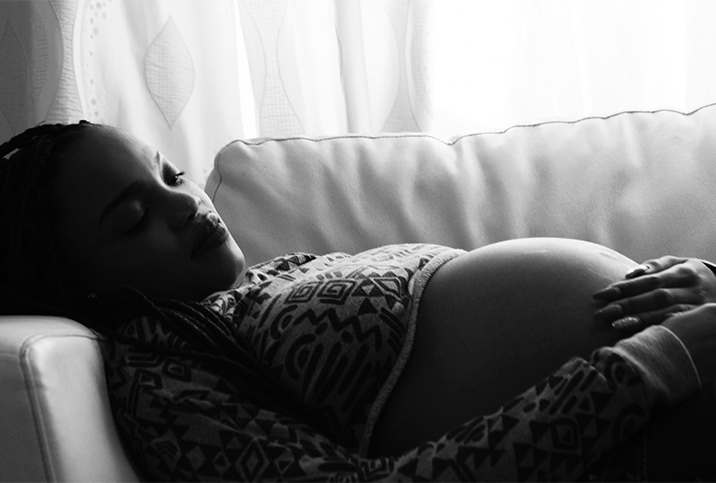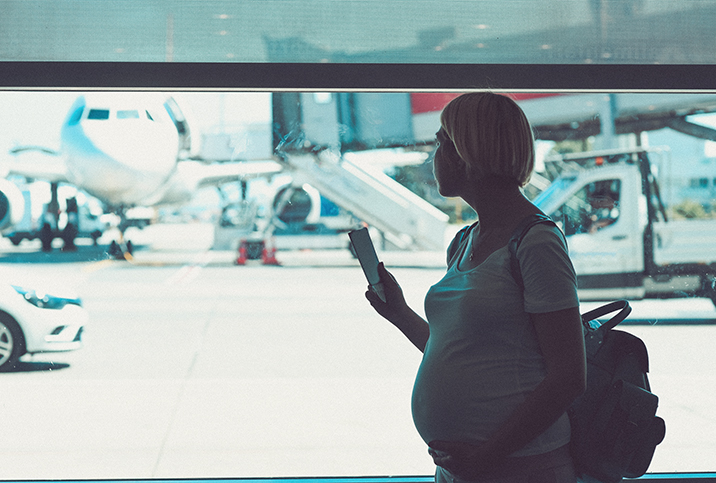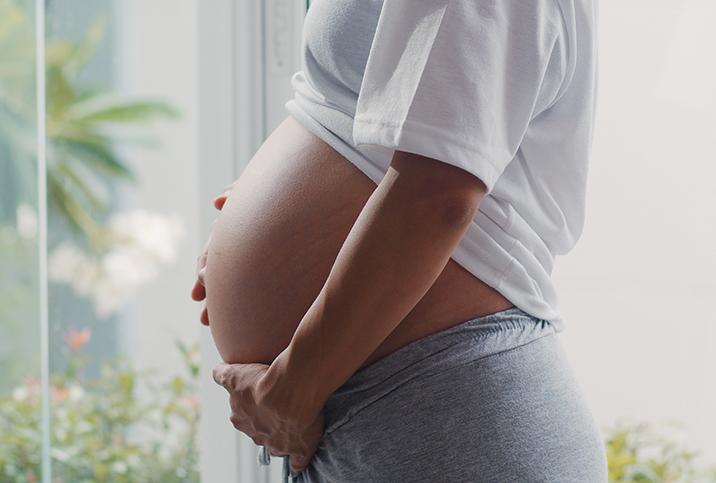Zika Can Be Devastating for Pregnant Women, Even Without Symptoms

When you ask someone to list the important sexually transmitted infections (STIs) to look out for, they'll most likely rattle off the usual list: chlamydia, gonorrhea, herpes, HPV, HIV, syphilis. But there's a dangerous (and sometimes deadly) STI that is rarely included on the list: a mosquito-borne disease called Zika virus.
Zika virus symptoms are typically mild, and the disease is relatively rare in most countries. But contracting the disease while pregnant can lead to devastating birth defects, as well as miscarriage or stillbirth. If you are pregnant or trying to conceive, it's important to know the basics about Zika and how to protect yourself from it.
Zika virus was first discovered in a forest in Uganda in 1947, and was contained to a handful of countries in Africa and Asia. In 2015 and 2016, the virus erupted in Brazil and quickly became widespread in North and South America. It was declared an epidemic by the World Health Organization (WHO), and deemed a Public Health Emergency of International Concern. There were 62 symptomatic cases reported in the United States in 2015; by 2016, that number had jumped to 5,168.
Fortunately, the epidemic was quickly contained. The WHO announced the end of the epidemic in November 2016. In 2020, only four symptomatic cases of the virus were reported in the United States.
Zika virus is still cause for concern in any country where the Aedes aegypti mosquito lives. If you are pregnant or trying to conceive, the Centers for Disease Control and Prevention (CDC) recommend taking precautions before traveling to countries where there has been current or past Zika transmission, or where the Aedes species of mosquitoes live.
Most people who are infected with Zika are asymptomatic. According to the Mayo Clinic, as many as four out of five people will show no sign of being infected by the disease. If any symptoms occur at all, they may include a mild fever, rash, joint pain, red eyes and eye pain, muscle pain, headache, fatigue and abdominal pain. In rare cases, more serious conditions can occur. Symptoms usually appear 2 to 14 days after being bitten by an infected mosquito and last for about a week. There is currently no vaccine for Zika virus.
Although Zika symptoms—if they appear at all—don't last long, a person can be a carrier of the virus for months after exposure. Women are considered carriers for two months, and because the virus lasts longer in semen than in other bodily fluids, men can be carriers for up to three months. Even if a person is asymptomatic, they can spread Zika virus through sex.
If any symptoms occur at all, they may include a mild fever, rash, joint pain, red eyes and eye pain, muscle pain, headache, fatigue and abdominal pain.
"Among women with confirmed Zika virus infection during pregnancy, Zika-associated birth defects occurred in approximately 2 in 20 (10 percent of) babies born to women in the U.S. and 1 in 20 (5 percent of) babies born in U.S. territories," says the CDC. Scientists found "a four-times increase in associated birth defects in areas with widespread local transmission." The highest risk of birth defects is found in babies whose mothers were infected with Zika virus in their first trimester, and the numbers decrease when exposure happens in the second or third trimester.
Microcephaly, which the Mayo Clinic described as "a rare neurological condition in which an infant's head is significantly smaller than the heads of other children of the same age and sex," is the most common Zika-related birth defect. "A child with more severe microcephaly may also have a backward-sloping forehead." Some children with microcephaly show no cognitive delays; other children may have complications, including delays in speech and movement, difficulties with coordination and balance, dwarfism or short stature, facial distortions, hyperactivity, intellectual disabilities and seizures.
It's important to note that Zika virus is not the only mosquito-borne disease to be aware of.
"Although the incidence of Zika has declined globally, diseases spread by mosquitoes are a significant risk in most parts of the world," said Aiman Halai, M.D., MPH, of the Los Angeles County Department of Public Health. "In L.A. County, the primary mosquito-borne disease of concern is West Nile virus, which can impact the nervous system and cause severe illness in those older than 50 years of age or with underlying medical problems. During travel, diseases like malaria, dengue and chikungunya can result in severe illness, including hospitalization and death. Many mosquito-borne diseases can be severe in or complicate pregnancy. Travelers, especially those pregnant or trying to conceive, should review their risk from travel with their provider and take steps to protect themselves from mosquito bites."
If you are pregnant or trying to conceive, it might be worth postponing any travel to areas affected by Zika virus. If traveling is necessary for you or your partner, the CDC provides guidelines for preventive measures—which include EPA-registered insect repellent, condoms or abstinence for the duration of the pregnancy, and/or waiting two months after travel to become pregnant.


















